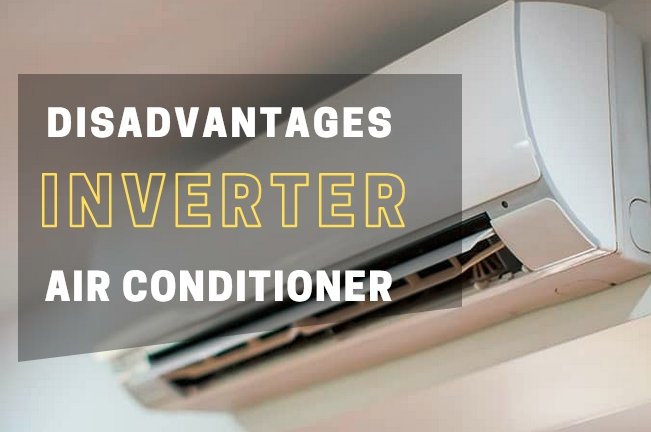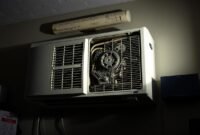Despite the many winning benefits of the inverter AC, you should also consider the disadvantages of the inverter air conditioner. Let’s face it: Air conditioning has become one of the crucial parts of housing utilities. It makes life more comfortable, especially during the summer months.
However, AC units come with different technologies and systems. There are non-inverter types, the inverter one, and even the latest dual or triple inverter units.
If you want to make a worthy purchase without regret, you must understand the advantages and disadvantages of each type, including your personal likes or preferences.
Non Inverter vs Inverter AC
The main difference between the two units is within the compressor speed. The conventional AC has a fixed (speed) compressor, while the inverter unit has a variable compressor. The latter one can deliver better energy efficiency, and it’s not as noisy as the fixed type.

You see, an inverter AC can adjust its (compressor) motor speed to regulate room temperature better. It uses inverter technology, an inverter switch that can offer better versatility for power usage. This AC unit is also more energy efficient, thanks to its auto ability to change the power consumption setting. Not to mention that it’s pretty sophisticated. It’s connected to various other components, getting information from sensors to manage the power flow.
Another difference is the eco-friendly nature of the inverter. The non-inverter unit uses the so-called refrigerant that generates dangerous emissions. The modern inverter unit, on the other hand, uses an efficient refrigerant that can deliver better cooling ability. Not to mention that it’s more eco-friendly.
Which Is Better Inverter or Non-Inverter AC?
Because of the different technologies, it’s obvious which one is better. It’s safe to say that the inverter AC unit is way better than the non-inverter type. In terms of electricity bill, inverter units can save around 30% of electricity. It’s energy efficient compared to the non-inverter AC using the on-and-off system.
Because of the usage, it leads to more tears and wear. Considering that the compressors aren’t fully running, it’s not effective or efficient.
Moreover, the inverter unit comes with variable speed compressors that can deliver adjustable speed range, which allows the unit to operate efficiently within various operating situations. Because of these factors, it shouldn’t be surprising that people want to know the best inverter air conditioner options.
Read also : What Is a Dual Inverter Air Conditioner: Finding Out the Facts
Disadvantages of Inverter Air Conditioner
So, what are the disadvantages of the inverter air conditioner? The biggest flaw is generally associated with the cost. Compared to the non-inverter AC unit, the inverter type has a high price upfront cost. It means that you will have to spend more money to buy the inverter type than the non-inverter one.
However, for the long-term expenses, you basically spend less. Your electricity bill won’t be as high as the non-converter type and you will definitely be able to save up more money. Moreover, you need to consider pricier repair and maintenance costs too.
Because the unit is more expensive, it’s only natural that the maintenance cost would also be higher. However, you won’t need to maintain or care for the unit quite often. But it would be worth spending because the unit has a longer lifespan.
What Is the Average Life of Inverter AC?
You also need to factor in the lifespan of the unit. An inverter unit can last up to at least 15 years, and 20 years for the max. The non-inverter one can last for at least 10 years to 12 years, max.
Conclusion
You should decide which AC unit types to choose depending on your preferences. Some people are more comfortable with the non-converter AC, while some are into the converter type. You should be fine if you know the disadvantages of an inverter air conditioner.


